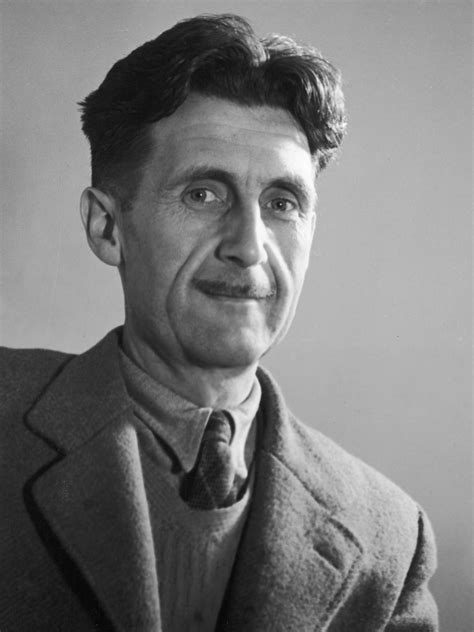Immerse yourself in the captivating world of a luminary figure whose literary contributions continue to resonate through the corridors of time. Delve into the enthralling narrative that chronicles the existence and creative essence of a revered wordsmith, transcending the confines of convention while rendering profound insights into the human condition.
Unveil the enigmatic tapestry of an enigmatic figure whose indomitable spirit of rebellion becomes palpable through the ink-laden pages that bear witness to his audacious penmanship. Embark on an exhilarating journey that navigates the depths of literary prowess, forged in the crucible of societal disquietude, and fortified by an unwavering commitment to truth and authenticity.
Imbued with unyielding sincerity, the prose of this iconic luminary becomes a looking glass that reflects the intricacies of a volatile world, mirroring the distortions and exposing untold truths. Peer through the lens of his perspicacious observations, empowering your own consciousness, and challenging the status quo that represses the human spirit.
Within the pages of his literary oeuvre, discover the nuanced brushstrokes that paint vivid portraits of humanity's triumphs and tribulations, often shrouded in the cloak of totalitarian regimes. Feel the weight of his words, as they pierce through the darkness and illuminate the path to enlightenment, daring you to question, to dissent, and to forge your own path amidst a sea of conformity.
Early Life and Influences: Shaping George Orwell's Perspective

Examining the formative years of the renowned author, this section sheds light on the factors that played a pivotal role in shaping George Orwell's unique perspective. By delving into his early life and the influential experiences that shaped his worldview, a deeper understanding of Orwell's literary contributions can be gained.
- Familial Background: Orwell's upbringing within a middle-class English family provided the foundation for his awareness of class divisions and social inequalities.
- Colonial Experiences: Orwell's time serving in the Indian Imperial Police in Burma exposed him to the injustices of colonialism, sparking his interest in political and social issues.
- Educational Journey: Orwell's education at St. Cyprian's School and later at Eton College shaped his intellectual pursuits and introduced him to various literary influences.
- Social Engagement: Orwell's involvement in socialist movements and his firsthand experiences with poverty during his time in London provided him with a deep empathy for the working class and a profound understanding of societal struggles.
- World War II: Orwell's participation in the war as a member of the Home Guard influenced his anti-totalitarian stance, which later manifested in works such as Animal Farm and 1984.
By exploring these formative experiences, it becomes evident that George Orwell's perspective on societal injustices, political systems, and individual freedom were profoundly influenced by the early stages of his life. The amalgamation of familial, educational, and personal encounters with societal realities played a crucial role in molding the renowned author's unique worldview and literary contributions.
A glimpse into Orwell's childhood, education, and formative experiences
Exploring the early years of the acclaimed writer allows us to gain insight into the factors that shaped his development and influenced his eventual works. From his humble upbringing to his educational journey, Orwell's formative experiences played a significant role in shaping his perspectives and literary style. Let us delve into the key moments and influences that left an indelible mark on the mind of this esteemed wordsmith.
Orwell's formative years were marked by a modest and unassuming upbringing in rural England. Growing up in a simple yet idyllic environment, he was exposed to the beauty of nature and the struggles of the working class. These early experiences fostered a sense of empathy and social awareness within him, foundational elements that would later permeate his writing.
As Orwell embarked on his educational journey, he encountered a range of experiences that would broaden his horizons and shape his intellectual growth. His inquisitive nature led him to pursue a diverse array of subjects, ranging from literature to politics. This eclectic knowledge base served as a valuable foundation for his later explorations of societal complexities and political ideologies.
Furthermore, Orwell's experiences during his time in the British Imperial Police in Burma left an indelible mark on his worldview. Witnessing firsthand the oppressive nature of colonialism and the damaging effects it had on both the oppressed and the oppressors, Orwell developed a deep-seated skepticism towards authority and power structures. This critical perspective would later be reflected in his works, where he frequently challenged unjust systems and totalitarian regimes.
Overall, these glimpses into Orwell's childhood, education, and formative experiences provide us with valuable context for understanding the man behind the renowned author. Exploring the environments, influences, and encounters that shaped his early years helps us appreciate the profound impact they had on his literary contributions and the enduring relevance of his works.
Orwell's Social and Political Engagement: From Activism to Writing

In this section, we explore the involvement of one of the most revered authors of the 20th century, George Orwell, in social and political matters. Through his dedicated activism, Orwell transformed his experiences and observations into powerful literary works that continue to captivate readers worldwide.
Championing the Cause: Orwell's unwavering commitment to social and political causes defined his life and work. With passion and conviction, he actively participated in various movements that aimed to address societal injustices and advocate for change. His writings reflect his deep understanding of the issues he fought for, making them even more impactful and thought-provoking.
Voicing the Voiceless: Orwell's engagement in activism allowed him to amplify the voices of the marginalized and oppressed. Through his writings, he shed light on the struggles faced by the working class, exposing societal inequalities, and the flaws of authoritarian regimes. Orwell's empathy and dedication to social justice resonated with readers, inspiring many to question prevailing power structures.
A Writer's Evolution: Orwell's activism played a pivotal role in shaping his literary career. His personal experiences in poverty, imperialism, and war provided the foundation for his iconic novels and essays. By intertwining his firsthand encounters with broader social and political issues, Orwell created works that not only entertained but also challenged readers to critically examine the world around them.
Legacy and Influence: Orwell's social and political engagement continues to inspire contemporary writers and activists. His commitment to truth and the courage to question authority serve as a reminder of the importance of standing up for what is right. Orwell's writings remain relevant today, reminding us of the power of literature to stir social change and provoke meaningful conversations.
In conclusion, Orwell's social and political engagement propelled him from activism to become a renowned author. Through his powerful writings, he not only captured the essence of the issues he fought for but also encouraged readers to question societal norms and strive for a more just world.
Exploring Orwell's Dedication to Social Justice and its Influence on his Literary Works
Within the realm of George Orwell's impactful body of work, there exists a profound commitment to advocating for social justice. This unwavering dedication to addressing the inequalities and injustices within society had a profound influence on his literary creations. Through his writing, Orwell masterfully delved into the complexities of social issues, shedding light on the troubling realities faced by individuals of different backgrounds and societal positions.
One aspect that set Orwell apart was his ability to authentically capture the struggles and triumphs of everyday people, regardless of their social standing. Utilizing vivid imagery and poignant storytelling techniques, he painted a stark picture of the societal divisions and the devastating consequences they often resulted in.
- Orwell's works frequently explored themes of poverty and inequality, illustrating the harsh conditions faced by marginalized communities.
- He fearlessly critiqued oppressive political regimes and totalitarian systems, exposing their inherent flaws and the suppression of individual freedoms.
- Orwell actively advocated for the rights of the working class, highlighting the exploitation and dehumanization prevalent in industrial societies.
- His writings also delved into the complexities of power dynamics and the corrupting influence they have on individuals and societies as a whole.
By intertwining his personal experiences and observations with insightful social commentary, Orwell's literary works became powerful tools for igniting social change. Through his writing, he urged readers to question the status quo, critically examine the structures of society, and seek a more just and equitable future. His unyielding commitment to social justice continues to resonate with audiences worldwide, inspiring them to challenge injustice and champion the rights of the marginalized.
Animal Farm: An Allegorical Critique of Totalitarianism

In this section, we will explore the powerful allegorical work of George Orwell, which is known as "Animal Farm". This renowned novella serves as a scathing critique of totalitarianism and uses animals on a farm to represent various factions and individuals in a satirical manner.
In "Animal Farm", Orwell skillfully uses animals to embody political figures and social classes, providing a thought-provoking commentary on the corrupting nature of power. Through the portrayal of the farm animals' rebellion against their human oppressors and the subsequent rise of a new society, Orwell exposes the dangers of totalitarian regimes and the manipulation of language and propaganda to establish and maintain control.
- Orwell cleverly personifies the pigs as the ruling elite, headed by the authoritative and manipulative character of Napoleon, who represents Joseph Stalin. The pigs' gradual transformation into human-like oppressors highlights the inherent corruption that often accompanies absolute power.
- Furthermore, the hardworking and loyal horse, Boxer, symbolizes the exploited and misguided working class, whose unwavering devotion is ultimately betrayed by the pigs' deceitful tactics.
- The cunning and persuasive character of Squealer, the pig responsible for disseminating propaganda, mirrors the role of media and state-controlled information in totalitarian societies.
- Through the animals' attempt to establish a fair and equal society on the farm, Orwell presents a scathing critique of the failures of the Russian Revolution and its subsequent transformation into a totalitarian regime.
By using animals as the main characters, Orwell creates a timeless and universal allegory that invites readers to reflect on the dangerous allure of power, the corruption it breeds, and the importance of vigilance in safeguarding democratic values. "Animal Farm" serves as a cautionary tale, reminding us of the fragility of freedom and the potential for those in power to manipulate and exploit the masses.
Exploring thematic elements and symbolic representations in the revered novel
Within the timeless pages of George Orwell's illustrious literary work, a profound exploration emerges, delving into a plethora of themes and intricately woven symbolism. This examination of Orwell's iconic novel aims to unravel the underlying ideas and devices employed by the author to convey his messages, without directly referencing the personage himself, his biographical details, or his standing as a celebrated wordsmith. Through a comprehensive analysis of the novel's core themes and symbolism, we shall embark on a journey of critical inquiry, unearthing the profound insights offered by Orwell's masterful storytelling.
1984: Orwell's Haunting Portrayal of a Troubling Future

In this section, we delve into George Orwell's remarkable novel, "1984", which encapsulates a daunting glimpse into a dystopian society that sends shivers down one's spine. Through his masterful storytelling and vivid imagery, Orwell crafts a disturbing narrative that forces readers to contemplate the potential consequences of an authoritarian regime.
- Orwell's depiction of a totalitarian government, referred to as "Big Brother," instills a sense of unease and oppression. The omnipresent surveillance, constant manipulation of information, and loss of personal freedoms create a bleak and chilling environment where individuality is crushed in the pursuit of absolute control.
- The protagonist, Winston Smith, serves as a symbol of resistance and rebellion against the suffocating power of the Party. As he navigates the treacherous landscape of lies and deceit, Winston's struggle becomes a rallying cry for the value of individual thought and the relentless pursuit of truth.
- The concept of "Newspeak" explores the power of language and its ability to shape thoughts and ideas. Orwell's prescient understanding of the potential for language manipulation sheds light on the dangers of controlling communication and restricting vocabulary to limit critical thinking.
- Orwell's vision of a society devoid of privacy and personal relationships is both haunting and thought-provoking. The eradication of love and intimate connections among individuals reflects the dehumanizing effects of an all-encompassing surveillance state.
- The perpetual war and constant rewriting of history in "1984" serve as warnings about the manipulative tactics employed by autocratic regimes to maintain dominance and manipulate public perception.
Through the exploration of themes such as government control, individual autonomy, and the power of language, Orwell's "1984" remains a chilling reminder of the potential consequences of unchecked power and the importance of vigilance in safeguarding our freedoms. This timeless masterpiece continues to resonate with readers, serving as a stark warning against the dangers of a dystopian future.
Analyzing the Disturbing Depiction of Surveillance and Totalitarian Control in Orwell's Magnum Opus
In this section, we delve into the thought-provoking narrative of George Orwell's masterpiece, exploring the unsettling portrayal of vigilant observation and authoritarian dominance. Within the framework of this renowned literary work, Orwell skillfully crafts a chilling critique of societies governed by intrusive surveillance and oppressive totalitarian systems.
Orwell's magnum opus offers a profound exploration of the pervasive surveillance that permeates the lives of individuals within a dystopian world. Through strategic employment of literary devices such as vivid imagery, poignant symbolism, and thought-provoking metaphors, the author unearths the consequences of constant scrutiny and the loss of privacy.
The narrative unfolds within a society where surveillance becomes an ever-present entity, evoking a sense of unease and constant scrutiny among both the characters and readers. Orwell's incisive portrayal of surveillance mechanisms serves as a stark reminder of the dangers posed by an all-encompassing surveillance state. The evolution and intensification of surveillance in the story mirror real-world concerns of unchecked government control in the era in which Orwell wrote.
Furthermore, Orwell exposes the insidious effects of totalitarian control in his work, ingeniously depicting the erosion of individuality, independent thought, and free will. Through the manipulation and suppression of information, the protagonist finds himself entrapped in a world where conformity reigns supreme and dissent is ruthlessly extinguished.
Orwell's compelling narrative serves as a cautionary tale on the precarious nature of power and the potential consequences when it falls into the wrong hands. By skillfully intertwining themes of surveillance and totalitarian control, the author prompts readers to ponder the importance of preserving personal freedoms and the need for constant vigilance to safeguard against the encroachment of authoritarian rule.
In conclusion, Orwell's masterpiece powerfully illustrates the perils of a society dominated by surveillance and totalitarianism. Through his captivating storytelling and astute social commentary, he compels readers to contemplate the implications of unchecked power, the erosion of privacy, and the necessity of remaining alert to protect the foundations of democratic societies.
FAQ
What are some interesting facts about George Orwell's biography?
George Orwell, whose real name was Eric Arthur Blair, was born in India in 1903. He had a diverse life, working as a police officer in Burma, a dishwasher in Paris, and a teacher. Orwell also fought in the Spanish Civil War and was known for his strong socialist beliefs.
What were George Orwell's main literary works?
George Orwell is best known for his works "1984" and "Animal Farm," which are considered monumental pieces of dystopian literature. He also wrote many other novels, essays, and reviews, covering a wide range of topics such as politics, social injustice, and the dangers of totalitarianism.
What influenced George Orwell's writing style?
George Orwell's writing style was heavily influenced by his experiences as a police officer and his time working-class jobs. His writing is characterized by a straightforward and unadorned language, reflecting his aim to convey his ideas clearly and honestly to the readers.
How did George Orwell's political beliefs shape his writing?
George Orwell was a staunch critic of totalitarian regimes and strongly believed in democratic socialism. His political beliefs greatly influenced his writing, as he often used his works to expose the dangers of authoritarianism and to champion the rights of the working class.
How did George Orwell's personal life affect his writing?
George Orwell's personal life played a significant role in shaping his writing. His experiences in the Spanish Civil War, for example, inspired his famous novel "Homage to Catalonia." Additionally, Orwell's commitment to honesty and integrity in his writing was a reflection of his personal values and experiences.
What is George Orwell's most famous work?
George Orwell's most famous work is the dystopian novel "1984." Published in 1949, it portrays a totalitarian society where the government exercises complete control over its citizens.



